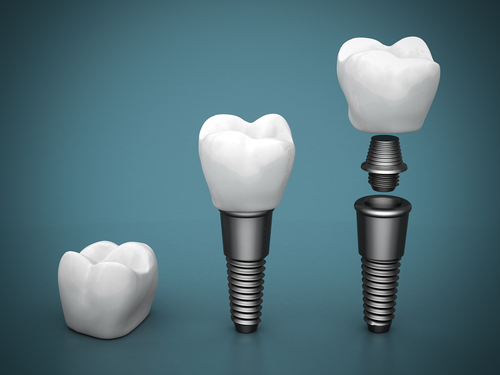Every prosthodontist knows that a patient’s lifestyle and general health can have an impact on the success of a procedure, but recent research also suggests that certain medications on their success rates. The success of a dental implant procedure depends on how well the existing bone accepts the dental implants, so any medication that has an impact on a patient’s bones can contribute to their success or failure.
A research team from McGill University spent eight years tracking more than 700 patients who received dental implants in New Brunswick. They collected data about the medications that the patients took during that time and the success rates for their procedures. They followed their survey of the patients with experiments in rats to test the trends that they found under controlled conditions. The data is not yet conclusive, since the researchers still need to perform clinical trials in humans to determine the significance of their findings, but there is plenty of early evidence that suggests that some medicines can both help and harm patients who are getting dental implants.
What Helps?
The research team focused their analysis on medications that were known to have and impact on bone formation. They expected beta-blockers to improve the success rate for the implants, since they already knew that the beta-blockers could encourage bone growth, so they focused their early efforts in that area.
Their expectations were correct, but the impact of the beta-blockers was much greater than the researchers had expected. They tested 142 people who had a total of 327 dental implants and took beta-blockers at the time of the procedure. Those patients experienced a failure rate of only .6% after their procedures. They compared those results to a group of 586 patients with a total of 1,172 implants who did not take the beta-blockers. Those patients had a failure rate of 4.1% after their treatment.
The difference between the two groups is startling. Very few things in medicine have such a large impact on their own, so this discovery has the potential to make a large impact on dental implantation and similar procedures once it has been studied in greater detail.
What Hurts?
The researchers also looked for medications that could hurt implant patients. Heart burn medication is known to decrease bone growth, and it is also fairly common, so the researchers investigated its impact. 58 patients with 133 implants took the medicine and suffered a failure rate of 6.8% for their implants. The 741 patients with 1,640 implants that did not take the medication suffered a failure rate of only 3.2% after their procedures. That’s not quite as significant as the benefits of taking beta-blockers, but it’s still an important discovery for dental patients. For more information, there are additional resources available at Prosthodontic Associates.












